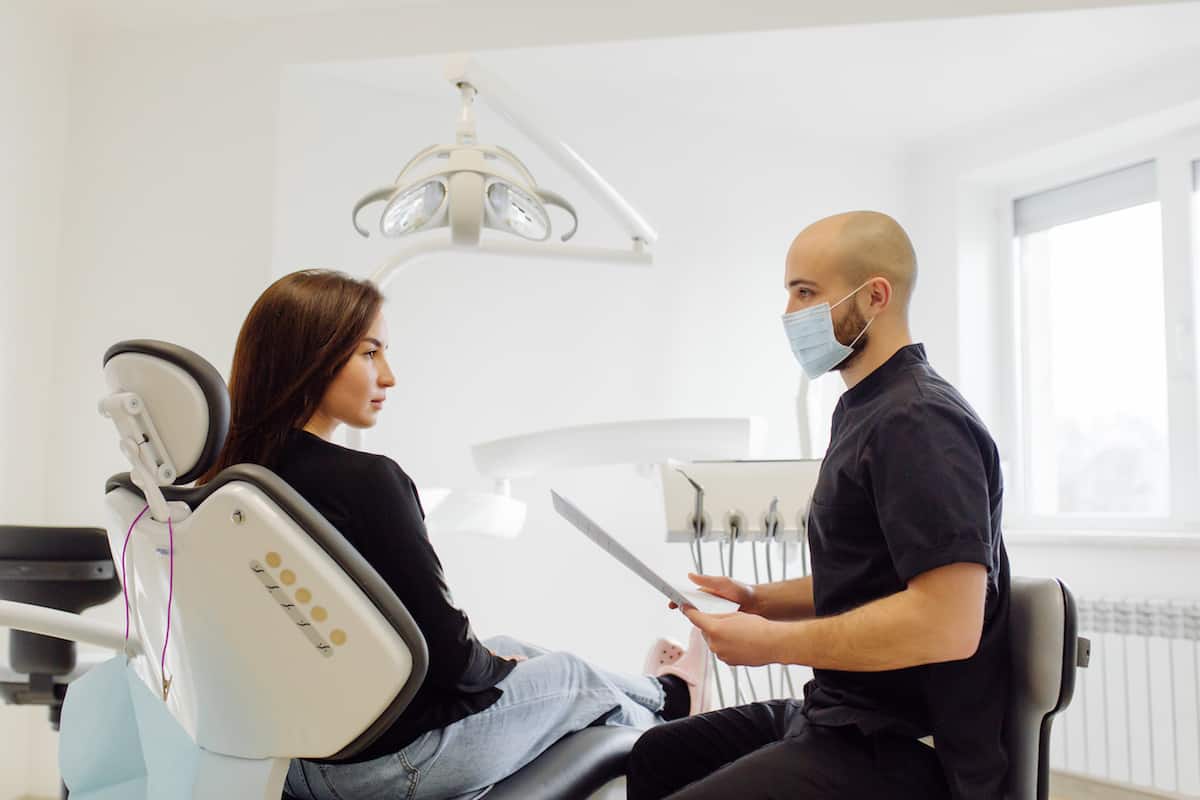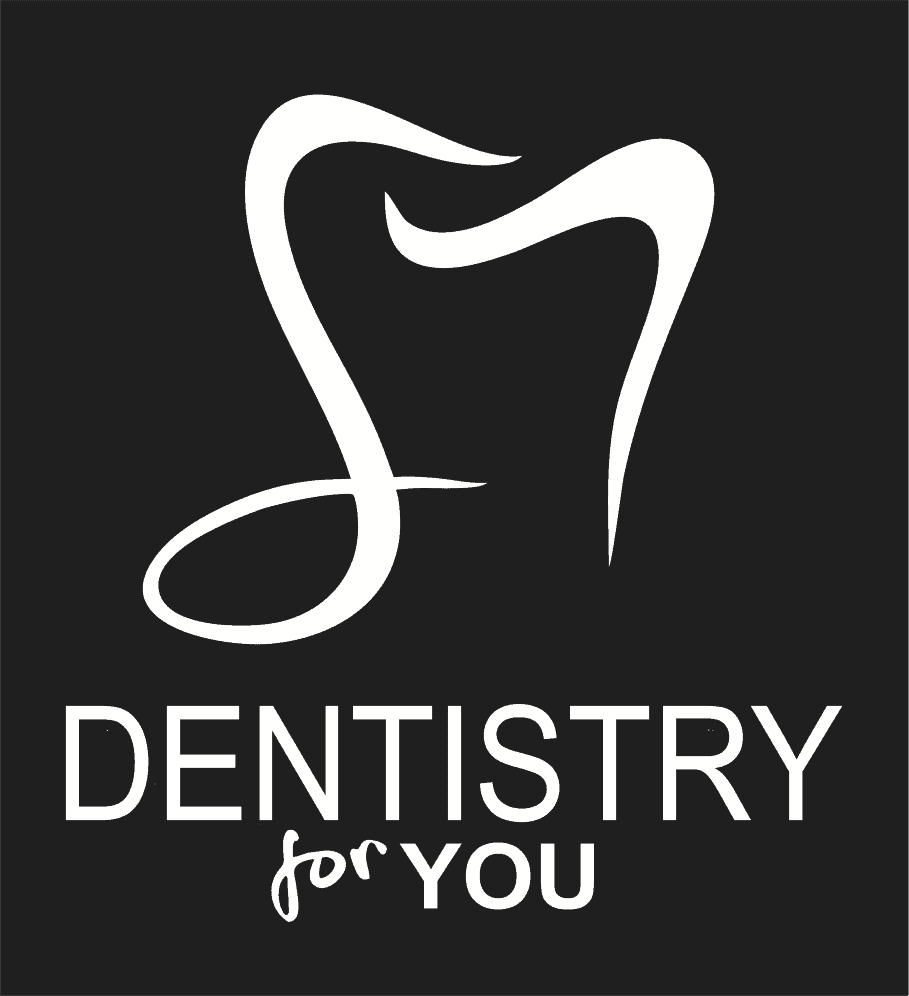
10 Aug How Can I Manage Dental Anxiety and Make Dental Visits Less Stressful?
Tips And Strategies For Managing Dental Anxiety And Stressful Dental Visits
Dental anxiety is a common issue that many people face when it comes to visiting the dentist. The thought of dental procedures can evoke feelings of stress, fear, and discomfort. However, there are several effective strategies you can employ to manage dental anxiety and make your dental visits less stressful. In this article, we’ll explore some ways you can manage dental anxiety and make dental visits less stressful so you can maintain good oral health.
First, what is dental anxiety? In short, dental anxiety is a psychological response to the idea of undergoing dental procedures. It can range from mild unease to severe phobia, and it often stems from various factors such as previous negative experiences, fear of pain, or embarrassment. Acknowledging your anxiety is the first step towards managing it effectively.
Tip #1 Choose a Supportive Dentist
Finding a dentist who understands your anxiety and is willing to work with you to alleviate it is crucial. Look for a dental professional who specializes in treating anxious patients. These dentists are trained to use calming techniques, explain procedures thoroughly, and provide a comfortable environment that promotes relaxation.
In addition, open and honest communication with your dentist can significantly reduce anxiety. Before your appointment, discuss your fears and concerns with your dentist. This allows them to tailor their approach to your needs, ensuring you’re informed about the procedures and the steps they’ll take to make you feel at ease.

Tip #2 Distraction and Relaxation Techniques
During the dental procedure, distraction and relaxation techniques can be incredibly helpful. Many dental offices now offer amenities like headphones, where you can listen to soothing music or an audiobook to take your mind off the procedure. Additionally, deep breathing exercises and mindfulness can help relax your body and mind.
For individuals with severe dental anxiety, sedation dentistry can provide a viable solution. There are different levels of sedation available, ranging from mild sedation that keeps you relaxed but awake, to deeper sedation where you may not remember the procedure afterward. Your dentist can discuss these options and help you choose the one that suits your level of anxiety and the procedure’s complexity.
Tip #3 To Manage Dental Anxiety Due To Financial Reasons
Dental anxiety due to financial reasons is a real concern that many individuals face. The cost associated with dental care can be a significant source of stress and apprehension, leading to avoidance of necessary treatments and check-ups. This type of anxiety can stem from worries about the potential expenses, especially if one doesn’t have dental insurance or the means to cover the costs out of pocket.
However, there are several steps that can be taken to address dental anxiety related to financial concerns.
- Firstly, researching and understanding your dental insurance coverage, if applicable, can provide clarity on what procedures are covered and what portion of the costs you might be responsible for.
- Some dentists also offer flexible payment plans or financing options that can help ease the financial burden.
- Moreover, it’s important to remember that neglecting dental care due to financial worries can actually lead to more extensive and costly treatments down the line. Regular dental check-ups can help catch issues in their early stages, preventing the need for more invasive and expensive procedures later.
- Open communication with your dentist about your financial concerns can also lead to finding more cost-effective treatment options that still maintain your oral health.
By addressing dental anxiety rooted in financial reasons, individuals can make informed decisions about their oral care and prioritize their well-being without unnecessary stress.
Tip #4 How To Help My Child Manage Dental Anxiety And Make Dental Visits Less Stressful
Adults aren’t the only ones who suffer with dental anxiety. Helping your child manage dental anxiety is crucial for their long-term oral health and overall well-being. Start by fostering a positive attitude towards dental visits from a young age. Explain the importance of oral hygiene in a simple and friendly manner, emphasizing that the dentist is there to help keep their teeth strong and healthy. Using age-appropriate books or videos about dental visits can also demystify the process and make it seem less intimidating.
Creating a comfortable environment is essential. Choose a pediatric dentist experienced in working with children, as they are skilled in making the experience enjoyable and less stressful. Schedule a “meet and greet” appointment before any procedures, allowing your child to become familiar with the dentist and the dental office. During the appointment, encourage your child to ask questions and express their concerns, fostering open communication that can alleviate fears. Additionally, consider using positive reinforcement, such as small rewards or praise, after successful dental visits to help your child associate the experience with positive outcomes.

Tip #5 Ways Your Dentist Can Make Your Dental Visits Less Stressful
As we briefly mentioned already, your dentist can employ several strategies to make your dental visit less stressful:
- Clear Communication. Explaining procedures and potential discomfort can reduce fear.
- Relaxing Environment. Comfortable seating, calming colors, and soothing music can ease nerves.
- Technology. Using modern tools like digital X-rays and painless anesthesia can minimize discomfort.
- Distraction. Providing entertainment options or music with headphones diverts attention from the procedure.
- Friendly Staff. A welcoming team creates a positive atmosphere from the start.
- Pain Management. Effective techniques ensure minimal discomfort during procedures.
- Pre-Procedure Discussions. Open conversations allow tailoring the procedure to the patient’s comfort.
- Breaks and Signals. Allowing breaks or a pause signal provides a sense of control.
- Post-Procedure Care. Clear instructions for recovery enhance patient confidence.
- Sedation Options. Nitrous oxide or oral sedatives can relax anxious patients.
Implementing these approaches can significantly reduce dental anxiety and create a more positive experience, promoting better oral health outcomes.
Why It’s Important To Have Regular Dentist Visits Despite Having Dental Anxiety
Regular dental visits are of paramount importance for maintaining optimal oral health and overall well-being. These routine appointments allow dentists to catch potential issues early on, preventing them from escalating into more significant and potentially painful problems. During these visits, dentists conduct thorough examinations, including checking for cavities, gum disease, and oral cancer. By identifying these problems in their initial stages, dentists can provide timely interventions that are less invasive and more effective. Moreover, regular cleanings and professional dental care help remove plaque and tartar buildup, contributing to healthier teeth and gums. Overall, consistent dental visits play a crucial role in preventing dental diseases and preserving a confident, vibrant smile.
Beyond the scope of oral health, regular dentist visits have broader implications for one’s overall health. Research has established a strong connection between oral health and systemic health, indicating that poor oral hygiene can contribute to various medical conditions, including cardiovascular disease, diabetes, and respiratory infections. Regular dental check-ups not only address immediate dental concerns but also contribute to reducing the risk of these systemic health issues. By maintaining good oral health, individuals can enjoy a better quality of life, improved self-esteem, and potentially lower healthcare costs in the long run. In essence, committing to regular dental visits is a proactive step towards holistic health and wellness.
Conclusion
Managing dental anxiety is essential for maintaining good oral health. By understanding the roots of your anxiety, choosing a supportive dentist, communicating openly, utilizing distraction techniques, and considering sedation options, you can transform your dental visits into more positive experiences. Remember, your oral health is vital, and taking steps to manage your anxiety will ultimately benefit your overall well-being.
Related Questions
Is dental anxiety common?
Yes, dental anxiety is a common issue that many people experience.
What is sedation dentistry?
Sedation dentistry involves using medication to help patients relax during dental procedures.
Will I be unconscious with sedation?
The level of sedation can vary; you might be awake but relaxed, or you might be more deeply sedated, depending on the procedure and your preference.
Is it important to manage dental anxiety?
Yes, managing dental anxiety is crucial for your oral health, as regular dental visits are essential for preventing more significant issues in the future.





Sorry, the comment form is closed at this time.